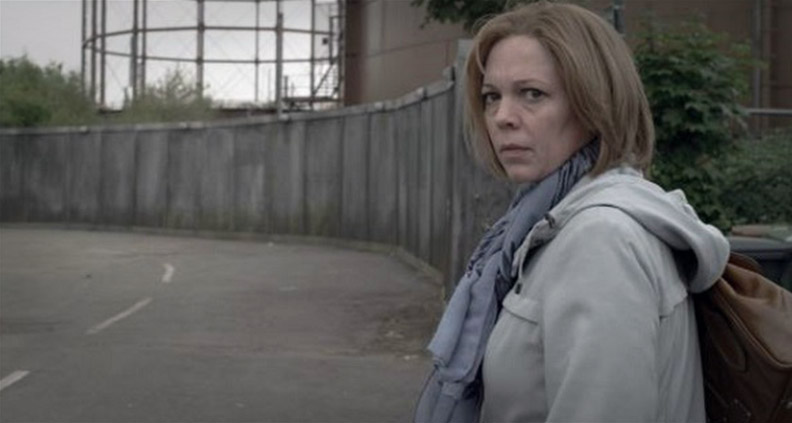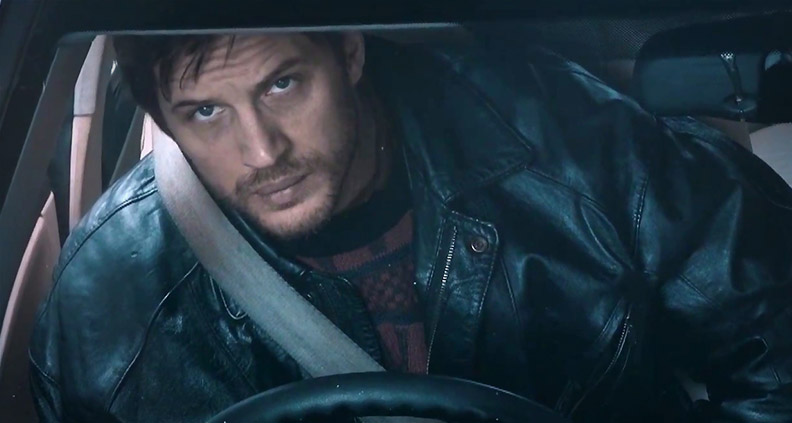How ‘London Road’ Became 2016’s Most Unique Movie Musical
In 2006, the rural English town of Ipswich (located in Suffolk) was shaken to its core when news broke that serial killer had been hiding among them. Residents of the typically quiet community were shocked to hear of the murders, committed by a local man named Steve Wright—who, in 2008, was convicted for strangling five women working as prostitutes.
It’s not unusual that someone would take a look at these tragic headlines and imagine that they’d be compelling fodder for a movie or play… but a musical? But that’s exactly what happened when writer Alecky Blythe, composer Adam Cork and director Rufus Norris created the innovative theatrical-documentary-musical hybrid London Road, which brought the grisly fallout of the Ipswich murders to theater stages in April of 2011.
In adapting the story to the stage, Blythe and Cork took interview transcripts from Ipswich residents, members of the media and local sex workers and converted them into lyrics (performed verbatim by the cast) and writing the songs that would become the centerpiece of a completely unique theatrical experience. But even as acclaim for the stage production mounted, its creators always had the intention to bring London Road to life on the big screen. Luckily it didn’t take long for that goal to be realized. The film adaptation of London Road—also written by Blythe and directed by Norris—opens in theaters today, Friday, September 9.
Norris and Blythe spoke with us about the challenges of adaptation, as well as what it was about such dark material that inspired them.

How did each of you come to be involved in the play and/or film? Did the Ipswich killings have an effect on you, personally?
Norris: Everyone in [the UK] was affected to one degree or another by the murders. It was particularly distressing that they happened in such a peaceful and quiet town such as Ipswich. I first became involved in the play when it was being developed at the National Theatre Studio, early in its development. After the success of the show, I felt certain that this incredible piece of work could adapt very well to the medium of film, and set about persuading everybody else that that was the case.
Blythe: I was affected by being in Ipswich at the time of the murders, which was really very chilling and perversely exciting at the same time. Then, a couple of years later, I met some former sex workers through a drug rehabilitation center in Ipswich. When I interviewed them, I was incredibly moved by their stories. It was at that point that the huge responsibility of telling this story dawned on me—their interview was turned into one of the [original London Road] songs, “We’ve All Stopped”.
What was the initial inspiration to make this story as a musical?
Blythe: Our composer Adam Cork and I were invited to take part in a workshop at the National Theatre Studio to explore writing musicals. I had wanted to make a musical for a while, not being a fan of the more conventional “stage-y” musicals, and was keen to explore verbatim and music. I took my early Ipswich recordings along, not planning that we would necessarily write a musical about that subject but more as clay for us to experiment with. However, by the end of the workshop we discovered that the subject matter was very well served by the addition of music. By structuring the material into songs [we were able] to enhance the story. Adam was able to set the spoken lines to music in a way that didn’t lose their authenticity.
What are some of the major differences between the stage play and the film? And which of these posed the biggest challenge?
Norris: The play had an internal framing device which meant the story could be told and sung by a cast of 11 using a few sofas and a bit of police tape. Adaptation is only successful if you adapt [the material] in a way that suits the medium—film, in this case. So in the film there’s a cast of 75 and hundreds of locations. The main challenge was in finding the road itself and making that the central character in the story.
Blythe: As the writer, the challenge for me was to try to make the film more visual. Verbatim is by nature very wordy, so I had to kill quite a few babies and create invented action. Once I allowed myself that license, I found it very liberating. Also the structure in the film is chronological—unlike in the play, which used flashback. So that required placing some of the central characters in big scenes that come early on in the piece even though in reality I had not met them at that stage.

How do you think audiences who haven’t seen the play and aren’t familiar with the subject matter will react to the film?
Norris: It may take a few moments to settle into the unusual way the story is told, but it’s very compelling and in its own way beguilingly familiar. I hope the humanity and honesty at the heart of it has the same effect on [moviegoers] as it has had on audiences in the UK and around the world.
Blythe: I think audiences are generally surprised how uplifting the film is, for what may initially appear to be a bleak tale. It ultimately offers redemption and hope going forward for both the street and the sex workers.
Last question: what advice would you give to aspiring playwrights, screenwriters, filmmakers or musical theater majors?
Blythe: It’s a tricky balance to strike, but it’s really important to be open to the reams of notes you’re going to get [while] at the same time as trusting your instincts and not letting go of them.
Norris: Do whatever you can to pursue your craft—keep your living costs down so you don’t need to use all your time paying the rent. Try to make sure that all the work you do relates to that craft in some way, but also don’t forget to live fully. If you’re going to tell stories of human endeavor and existence with any depth, you have to live first.
London Road is now playing in New York City and opens in Los Angeles September 16, expanding in wider release throughout the rest of the month and into October. For more info, visit the film’s Facebook page.
To learn more about Film Independent, subscribe to our YouTube channel or follow us on Twitter and Facebook. To learn how to become a Member of Film Independent, just click here.